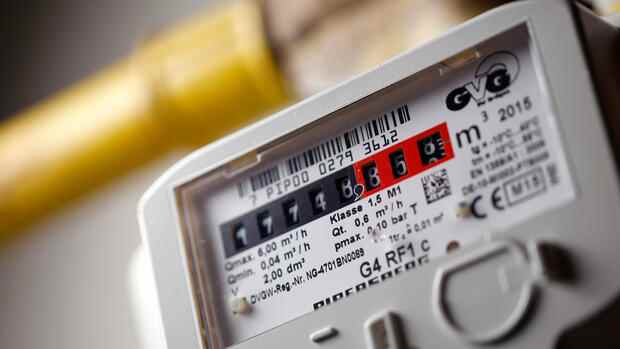The inflation rate should remain in the double digits – despite the reduction in VAT on gas from October.
(Photo: IMAGO/Future Image)
Frankfurt The inflation rate in Germany rose again significantly in October. Consumer prices increased by 10.4 percent compared to the same month last year. This was announced by the Federal Statistical Office on Friday based on a preliminary estimate. This is the highest level since 1951, as the Federal Statistical Office announced on Friday.
In September, the inflation rate was 10.0 percent. Economists surveyed by the Reuters news agency had expected a figure of 10.1 percent for October.
In its current monthly report for October, the Bundesbank assumes that the inflation rate will remain in the double digits in the coming months, even if some relief has come into force, such as the reduction in value added tax on gas and district heating from October.
The value for Germany, which is well above expectations, is also a warning signal for the inflation figures for the entire euro area, which the European statistical office Eurostat will publish on Monday. The statistical offices in Italy and France also reported significantly higher values.
Top jobs of the day
Find the best jobs now and
be notified by email.
Economists had previously expected the inflation rate for the euro area to fall from 9.9 to 9.4 percent in October. That now seems rather unlikely. “Today’s price data confirm our expectation of a double-digit euro area inflation rate in October,” says Commerzbank economist Marco Wagner.
This means that the pressure on the European Central Bank to continue raising interest rates remains high. On Thursday, the central bank raised the key interest rate by a further 0.75 percentage points to two percent and the deposit rate, which is currently relevant for the financial markets, to 1.25 percent.
After the meeting, several representatives spoke out in favor of further tightening of monetary policy, including the central bank governors from Lithuania, Slovakia and France. However, ECB President Christine Lagarde pointed out at her press conference on Thursday that interest rate hikes only have an impact on inflation after some time. “Nothing we do has an immediate impact on inflation, it only works with a time lag.”
With regard to Germany, many economists assume that inflation will continue to rise in the coming months. “We are still a few months away from the peak,” expects the economist at the Dutch ING bank, Carsten Brzeski.
He points out that the price pressure has spread to other parts of the economy. Brzeski assumes that inflation in Germany will peak at the turn of the year. He only expects single-digit values again from spring 2023.
In Brzeski’s view, the recent drop in wholesale gas prices will have little impact on the inflation outlook in the short term.
Commerzbank economist Wagner also says about the further inflation prospects: “An easing is not in sight.” He assumes that the inflation rate will only fall in the coming year because “energy prices will hardly increase as much again due to state intervention will be like this year”.
The federal government wants to introduce price brakes for electricity and gas prices. Energy prices are currently the strongest driver of inflation. They increased by an average of 43.0 percent compared to October 2021. Food cost 20.3 percent more. 4.0 percent more had to be paid for services.
Commerzbank expert Wagner points to the increase in core inflation, from which prices for energy and food that are particularly susceptible to fluctuations are eliminated. According to an estimate by Commerzbank, it rose from 4.6 to 5 percent in October.
“Prices are going up across the board,” he says. This is unlikely to change in the foreseeable future. “In view of the high inflation, which is accompanied by a significant loss of purchasing power, the unions are likely to push through higher wages.” Because of the obvious shortage of workers, they are in a good negotiating position.
More: Despite fears of a recession, the ECB is daring to take another huge interest rate hike


